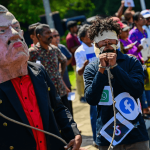
The committee is established to manage South Korea’s long working hours.
Discussions between the South Korean government, employers, and employees will start soon to enhance the work-life balance and add more flexibility to South Korea’s 52-hour workweek. On Sunday, the Presidential Economic, Social, and Labour Council stated that it will establish a committee on work-life balance while the first meeting will take place to discuss plans to increase flexibility and reduce working hours. The council is a presidential panel encouraging trilateral dialogue between management, government, and labour. The council is the only official platform for the discussion between these three sides. Employees are represented by the Federation of Korean Trade Union, while employers are represented by the Korea Enterprises Federation and other business lobby groups.
South Korea’s notoriously long working hours
The committee is established to manage South Korea’s long working hours. In 2022, Koreans worked 1,901 hours on average, which is 149 hours more than the average of the OECD. Both the employers and employees have agreed that the working hours should be reduced, but the two groups have different opinions on how to change the current 52-hour workweek, which comprises 40 regular working hours and 12 hours of possible overtime.
Employers want to reform to bring more flexibility so that during busy times the employees can work longer and shorter during slow periods. Sohn Kyung Shik, KEF Chairman, highlighted the need for flexibility, especially in industries like gaming where long working hours are common. The chairman suggested that after long working hours could take a week or two off, and this kind of flexibility is important.
The Yoon Seok Yeol government tried to bring change in the workweek system last year in March but was unsuccessful because of the strong opposition. However, the employees strongly oppose more flexibility, saying that it will result in increasing overall working hours. Two of the of the largest unions in South Korea, the Korean Confederation of Trade Unions and FKTU, are supporting the four-day workweek system.
High suicide rates in South Korea
In the Organisation for Economic Cooperation and Development, South Korea has the highest suicide rate. In 2021, around 13 thousand people took their own lives. The suicide rate in South Korea has nearly doubled over the past two decades. In 2022, suicide was the sixth leading cause of death in South Korea, followed by diseases like cancer and heart attack.
Suicide in South Korea is now considered as both a personal health issue and a bigger social problem, which is linked to the growing economy of the country. Poverty, youth unemployment, and rising inequality are becoming the reasons for suicide. Social pressure in a competitive society is a major factor leading to the high suicide rates.







